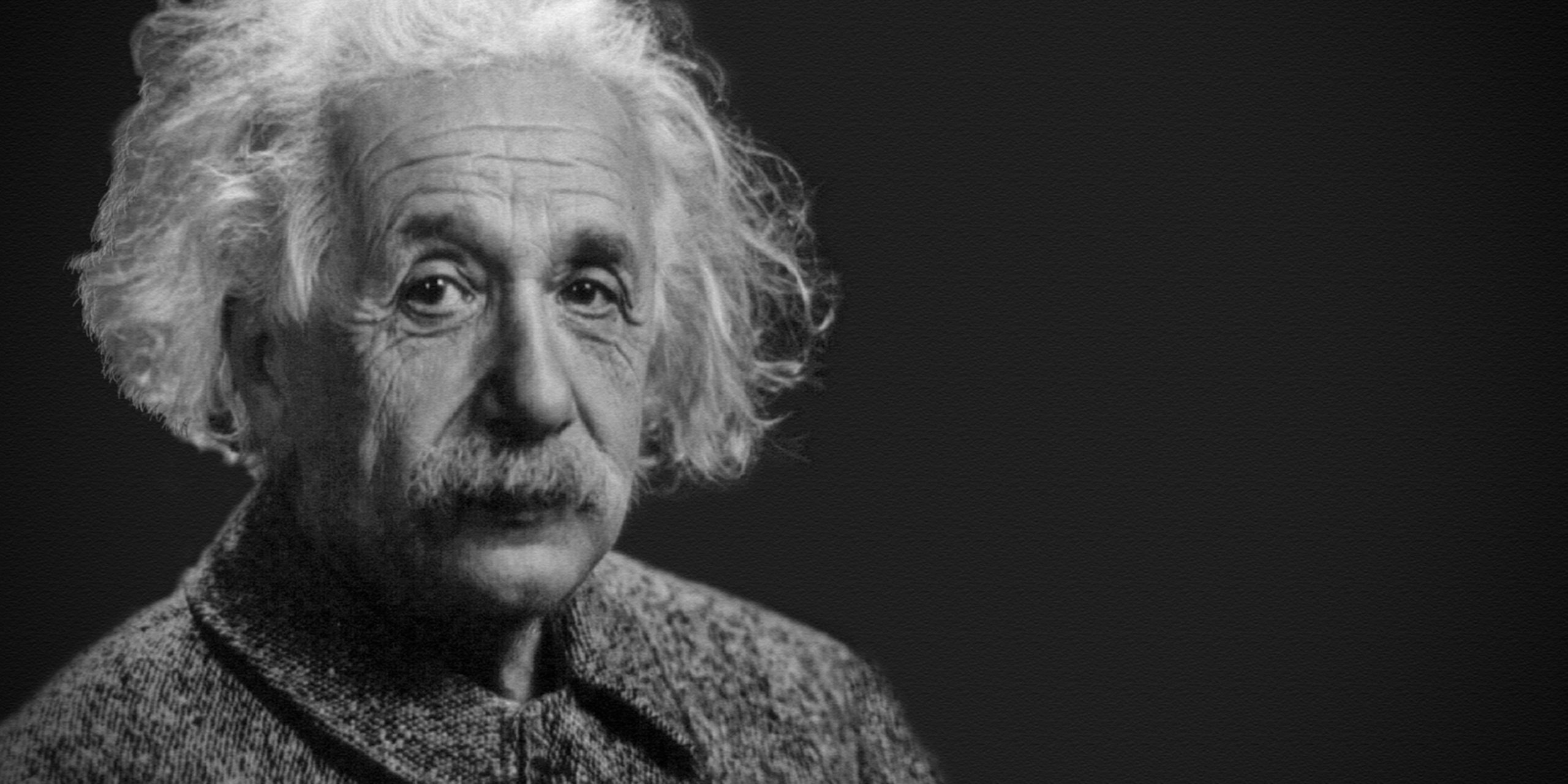12 Inspiring People Who Changed the World in Spite of Their Disabilities

Disabilities create barriers and difficulties for people, and while these challenges can often make you focus on what you cannot do- these inspiring people prove that you can change the world- no matter what your abilities are.
From Franklin D. Roosevelt to Harriet Tubman, let’s take a look at 12 inspiring people who have overcome their disabilities and made the world a better place.
They are indeed real-life proof that even with physical and mental challenges, we can use our capabilities to make a difference and contribute to society.
People who changed the world despite their disabilities
1. Franklin D. Roosevelt: the world leader
Franklin Delano Roosevelt (FDR), was an American politician and lawyer who presided as the 32nd president of the United States. From 1933 until his passing in 1945, he played a major role in global events as a member of the Democratic Party and won a record four presidential elections.
In 1921, at the age of 39, Roosevelt contracted poliomyelitis (polio), which resulted in FDR losing the use of his legs.
(There was no polio vaccine yet at that time- as it was developed at the University of Pittsburgh School of Medicine later on by Jonas Salk and only became widely available in 1955.)
The majority of the Great Depression was under Roosevelt’s leadership as he implemented his New Deal domestic agenda in response to the worst economic catastrophe in American history. As a dominating leader of his party, he established the New Deal Coalition, which for the middle third of the 20th century, characterized modern liberalism in the United States. His third and fourth tenure as president was dominated by World War II, which ended soon after he passed away in 1945.
Roosevelt sponsored polio research while he was president. He started the National Foundation for Infantile Paralysis, which later became the March of Dimes organization. The March of Dimes now conducts studies on birth defect therapies and infant mortality prevention.
“The test of our progress is not whether we add more to the abundance of those who have much; it is whether we provide enough for those who have too little.” – Franklin Roosevelt

2. Stephen Hawking: the genius theoretical physicist
Stephen William Hawking is recognized as one of history’s most accomplished theoretical physicists. His groundbreaking research on the Big Bang and the universe’s structure have revolutionized the scientific field. His numerous articles and best-selling books on theoretical physics, like A Brief History of Time, have inspired readers all over the world.
Dr. Stephen Hawking lived almost 55 years of his life with a disability. At the age of 21, Dr. Hawking received amyotrophic lateral sclerosis (ALS) diagnosis (also known as Lou Gehrig’s illness) while he was enrolled in graduate school. Despite some doctors’ predictions that his life would be brief, he passed away at the age of 76 in 2018.
Due to his contributions to physics, Hawking received numerous prestigious awards. He was selected as one of the Royal Society’s youngest fellows in 1974. In 1977, he was appointed professor of gravitational physics at Cambridge, and in 1979, he was appointed a Lucasian professor of mathematics at Cambridge (a position previously held by Sir Isaac Newton).
Hawking received the designations of Companion of Honor in 1989 and Commander of the Order of the British Empire (CBE) in 1982. In addition, he was awarded the Copley Medal by the Royal Society in 2006 and the U.S. Presidential Medal of Freedom in 2009.
“One, remember to look up at the stars and not down at your feet. Two, never give up work. Work gives you meaning and purpose and life is empty without it. Three, if you are lucky enough to find love, remember it is there and don’t throw it away.” – Stephen Hawking

3. Steve Jobs: legendary tech CEO and philanthropist
Steve Jobs’ influence on the world as an innovator and visionary is still felt today thanks to his contributions to technology, innovation, and product creation.
When Jobs was in charge of Apple, the business developed ground-breaking products including the iPod, iPhone, and iPad. He established the NeXT computing company, which produced an operating system that Apple later bought to advance its personal computers. Pixar was successfully established by Jobs as a pioneer in animated feature films, and in 2006, the firm was sold to Disney for a sum of $7.4 billion.
Despite being best known as the CEO of Apple, the late Jobs had a significant impact in fields outside of technology. Jobs’ accomplishments and ideas continue to have an impact on sectors and lifestyles around the world, from his 1986 acquisition of Pixar to his support of charities and environmental issues.
Even though Jobs had dyslexia as a child, he nonetheless managed to build one of the most cutting-edge computer firms in history. Jobs’ career was free of any indications that he had a reading disorder. Additionally, it didn’t hinder him in public speaking. He is still regarded as one of history’s greatest innovators.
“We’re here to put a dent in the universe. Otherwise why else even be here?” – Steve Jobs

4. Albert Einstein: the influential scientist
Albert Einstein is often cited as one of the most important scientists of the 20th century. Astronomers are still using his work to better understand anything from gravitational waves to Mercury’s orbit.
Even among individuals who are unfamiliar with the underlying physics of special relativity, the equation E = mc2 that Einstein developed to help explain it is probably one of the most well-known equations worldwide.
In addition, Einstein is renowned for the photoelectric effect, which explains how electrons behave under specific conditions, and his theory of general relativity, which explains gravity. The latter achievement earned him the Nobel Prize in Physics in 1921.
Although Albert Einstein, the Nobel Prize-winning Father of Relativity, is regarded as one of the greatest minds of all time, he was not particularly bright when he was a child. Researchers now concur that Einstein suffered from a serious learning disability that would be identified as ADHD or dyslexia in modern times.
He did poorly in school through college and did not begin speaking until he was about seven years old. At the age of twenty, after being denied admission to graduate school, he started working as a clerk for the Swiss Patent Office. But he continued to pursue his intellectual interests.
After only six years, he released the first version of his theoretical Theory of Relativity, for which he was awarded the Nobel Prize ten years later.
“Only a life lived for others is a life worthwhile.” – Albert Einstein

5. Helen Keller: author, disability rights advocate, political activist, lecturer
Helen Keller was an American author, disability rights advocate, political activist, and lecturer. She was born in West Tuscumbia, Alabama, and lost her sight and her hearing after a bout of illness (possibly scarlet fever) when she was only 19 months old.
She broke down barriers when became the first deaf-blind person to earn a Bachelor of Arts degree at the Radcliffe College of Harvard University.
From 1924 through 1968, she worked for the American Foundation for the Blind (AFB). During this period, she toured the United States and traveled to 35 different nations, speaking up for people who have lost their vision.
Keller was a prolific writer as well, penning 14 books in addition to countless speeches and essays on diverse subjects, from animals to Mahatma Gandhi.
She advocated for people with disabilities, women’s suffrage, labor rights, and international peace. In 1909, she joined the Socialist Party of America and was one of the founding members of the American Civil Liberties Union.
For many visually-impaired, hard of hearing, and deaf youngsters, Keller was a trailblazer and a reminder that our disabilities are not a handicap – they are part of who we are.
“Although the world is full of suffering, it is full also of the overcoming of it.” – Hellen Keller

6. Alexander the Great: the mighty conqueror
Alexander the Great, also known as Alexander III or Alexander of Macedonia, was one of the greatest generals in history.
In a relatively short amount of time, the Macedonian ruler conquered Egypt, the Middle East, and parts of Asia. His empire altered the history of the area and brought about substantial cultural changes in the places he conquered.
Alexander constructed numerous towns and cities in the lands he conquered, most notably Alexandria in Egypt. He continued to conquer the Persian Empire’s territory, finding other cities and frequently giving them his name. He continued to conquer Asia till he arrived at the Indian beaches of the Ganga (Ganges) River.
In 323 BC, Alexander the Great passed away for an unspecified reason. According to medical history, the consequences of a congenital scoliotic condition (scoliosis) may have contributed to Alexander’s demise.
Therefore, it would be important to take note of the possibility that one of history’s greatest and strategic leaders, who conquered much of the known world at the time, may have had a physical disability throughout his life.
“Through every generation of the human race, there has been a constant war, a war with fear. Those who have the courage to conquer it are made free and those who are conquered by it are made to suffer until they have the courage to defeat it, or death takes them.”- Alexander the Great

7. Ludwig van Beethoven: the musical genius
Ludwig van Beethoven was one of the most significant figures in the history of Western music. He was a pianist, musical arranger, instructor, and composer throughout his career.
Some of his best-known works include The Piano Sonata No. 14 known as “Moonlight Sonata,” the Bagatelle No. 25 known as “Für Elise,” the Third Symphony known as “Heroic Symphony,” the Fifth Symphony or Destiny Symphony, and the Ninth Symphony or Choral.
Beethoven experienced hearing problems from an early age, which got worse as he got older. From 1802 until his final days in 1827, he suffered from severe depression due to his deafness worsening. He admitted in this letter to his brothers that he had thought of killing himself, but he felt that his artistic career should not stop at this time.
Despite his hearing loss, Beethoven managed to complete most of his compositions, including the 9th Symphony. Hearing aids, as well as his sense of rhythm and harmony, helped him create his compositions.
“This is the mark of an admirable man: steadfastness in the face of trouble.”- Ludwig van Beethoven

8. Thomas Edison: the great inventor
Thomas Alva Edison was an inventor who developed the light bulb and the full electrical lighting system that could support an entire city. He also created the phonograph, which was inspired in part by the machine’s capacity to plan content beneficial to the blind. He also invented the motion picture camera and over 1,200 other things.
Despite being completely deaf in one ear and hearing impaired in the other, Thomas Edison saw his deafness as a blessing in many respects. It made interactions brief so he could focus more time on his tasks. Because he worked 16 out of every 24 hours, he referred to himself as a “two-shift man.” He would occasionally work so hard that his wife would have to remind him to eat and get some rest.
Thomas Edison passed away at the age of 84, leaving behind many innovations that raised the standard of living for people everywhere.
“The man who doesn’t make up his mind to cultivate the habit of thinking misses the greatest pleasure in life.” – Thomas Edison

9. Maya Angelou: author and civil rights activist
Maya Angelou was an award-winning author, poet, civil rights activist, college professor, and screenwriter. Angelou, who is best known for her literary works, was and still is, one of the most significant women of her era. Even now, years after her death in 2014, Angelou remains revered and remembered for her decades of perseverance and tenacity.
Due to the physical and sexual abuses she suffered as a child, Angelou got inflicted with selective mutism, an anxiety disorder that prevents children from speaking due to physical and emotional harm they have experienced. During the five years that she went through selective mutism, her abilities in listening, watching, and memorization improved and her love for reading grew. This helped her later on when she started working to advance her writing career.
“Courage is the most important of all the virtues because without courage, you can’t practice any other virtue consistently.”- Maya Angelou

10. Temple Grandin: industrial designer and animal behaviorist
Temple Grandin is an American industrial designer, scientist, academic, and animal behaviorist whose personal experience with autism inspired her to pursue a career designing technologies to reduce stress in particular human and animal populations.
At age three, Grandin was unable to speak and displayed other behavioral issues- she was later diagnosed with autism. Instead of sending Grandin to an institution as recommended by a doctor, her parents sent her to several private schools where her high IQ was fostered. She earned a bachelor’s degree in psychology from Franklin Pierce College and then went on to earn a master’s degree in animal science from Arizona State University and a doctorate in animal science from the University of Illinois at Urbana-Champaign.
Since 1990, she has headed Grandin Livestock Systems and has been teaching animal science at Colorado State University in Fort Collins.
Grandin dedicated her life to developing methods to reduce the anxiety of both autistic people and animals. She was aware that great dread, born of hypersensitivity to sound and touch, is common to both. She created a “squeeze machine” in high school to soothe her anxiety, basing it on a chute used to keep livestock in place for branding, vaccinations, and other operations. In addition to being utilized in schools to calm autistic children, improved versions of her device are also frequently used by autistic people to comfort themselves.
“I don’t want my thoughts to die with me, I want to have done something. I’m not interested in power, or piles of money. I want to leave something behind. I want to make a positive contribution – know that my life has meaning.”- Temple Grandin

11. Louis Braille: educator, musician, writer, and inventor
Louise Braille was a French educator who invented the Braille system, a tactile system of reading and writing for the blind and visually impaired. The Braille system consists of raised dot codes that are used by the visually impaired worldwide to read and write until this day.
At the age of three, Braille accidentally injured one of his eyes with an awl from his parents’ workshop. Both his eyes got infected, resulting in complete blindness at the age of five.
Despite his handicap, Braille’s parents wanted him to obtain an education and they enrolled him in the village school, where he learned by listening. As a result of his dedication to his studies, he was awarded a scholarship at the age of 10 to study at the National Institute for Blind Youth in Paris, France. While there, a French Army officer named Charles Barbier visited the students there and showed them a 12-dot cryptography system he had developed for soldiers to use for nighttime battlefield communication. This is where Louis Braille got the idea for developing the Braille system.
From age 12 to 15, Louis meticulously examined Officer Barbier’s system and created a less complex system that just used a six-dot code so that the blind may use a single index finger to feel and read. In 1824, at the age of 15, he presented the Braille system to his peers.
However, it was many years later after his death in 1852 before the system was recognized as a revolutionary invention and has been adapted for use worldwide in languages, symbols, numbers, math, and music.
“We must be treated as equals – and communication is the way we can bring this about” – Louis Braille

12. Harriet Tubman: abolitionist and social activist
Harriet Tubman, often known as the “Moses of her people,” was a slave who escaped and helped other slaves regain their freedom by being the “conductor” of the Underground Railroad, a secret system of routes and safe houses used to transport slaves in the South towards freedom in the North.
Tubman showed early signs of opposition to slavery and its injustices when, at age 12, she intervened to stop her master from striking an enslaved man who attempted to flee. She received a two-pound weight to the head, causing terrible headaches and narcolepsy for the rest of her life.
In addition to leading more than 300 enslaved people to freedom, Tubman helped ensure the end of slavery in the U.S. by working as a scout, spy, guerilla solider, and nurse for the Union Army during the American Civil War. She is regarded as the first African-American woman to serve in the military.
“I had reasoned this out in my mind; there was one of two things I had a right to, liberty, or death; if I could not have one, I would have the other.” – Harriet Tubman

What can we do to support people with disabilities around us?
Having a disability does not mean a person is unable to learn, work, or be a valuable member of society. Rather, it just means the person has an extra challenge to overcome – and having the right support to overcome that challenge can make all the difference in the world.
But when children with disabilities are excluded from the classroom, when adults with disabilities are discriminated against in their workplaces, or when society does not provide better access to people with disabilities, they are not only being separated from their peers but they’re also being excluded from opportunities to learn, to thrive, and to reach their full potential.
Society should work better to make inclusivity the norm- this means creating an accessible environment for people with disabilities. An environment where we remove physical, social, and attitudinal barriers that restrict access and inclusion.
Inclusive classrooms, communities, workplaces, and representation in media, politics, and business are all examples of an inclusive environment.
By putting accessibility aids such as ramps, lifts, safety poles, grab bars, barrier-free bathrooms, etc. in homes, schools, offices, and public spaces, we promote equal access to people of all physical abilities. Instructions or guides can be presented in more than one format – like as written format, Braille format, and audio format – to accommodate all types of people and not hinder anybody’s desire to learn.
Increasing disability representation in the media, leadership, and business world are crucial for comprehending disability, dispelling prejudices, and implementing positive changes in the world.
Conclusion
Life gives us all kinds of situations. It is up to us what we do with it. You can’t let the obstacles in your way define your life. Like Helen Keller said: “Optimism is the faith that leads to achievement. Nothing can be done without hope and confidence.”
People of all abilities should help each other. Empathy is the best cure for the ‘I’ disease that makes us all focus selfishly on ourselves.
As we saw from the twelve inspiring people presented in this article, anyone can achieve greatness regardless of their situation, as long as they have grit, perseverance, and the loving support and encouragement of the people around them.
Home2stay is committed to breaking down architectural and physical barriers in our society- our solutions have helped countless people with disabilities have equal access to the world around them. Our company is proud to contribute to the great goal of a more accessible Canada.





Leave a Comment
We'd Love to Hear Your Thoughts Got something to say? We're all ears! Leave your comments below and let us know what you think. Your feedback helps us improve and serve you better. Can't wait to hear from you!